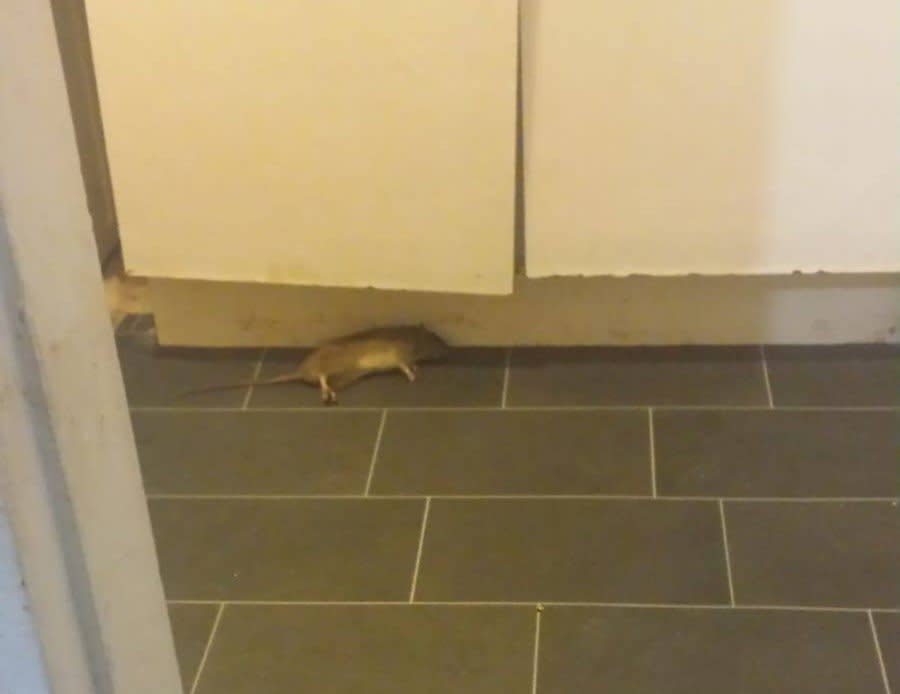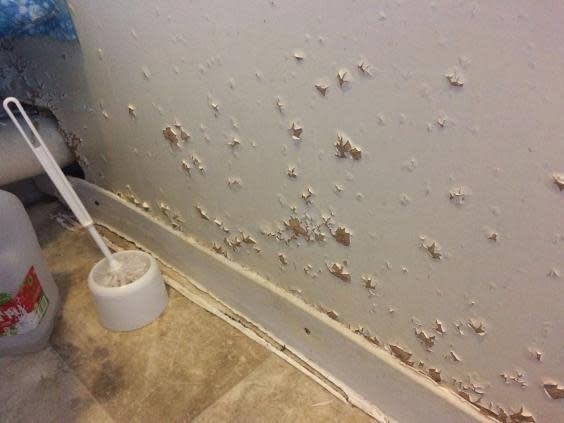Vermin, overcrowding and perpetual fear: The reality of housing for asylum seeking women and children in UK

Women and children seeking sanctuary in Britain are living in overcrowded houses ridden with vermin, a report has shown, almost two years after the Home Office was ordered to take urgent action over poor conditions in asylum housing.
The report, seen exclusively by The Independent, reveals that asylum seeking families are being placed in accommodation so dirty it has made children ill and driven some women to self-harm.
Politicians and charities said the “appalling” conditions were the result of both long delays in asylum decisions and mismanagement in the outsourcing of contracts by the Home Office allowing private firms to “cut corners”.
The research, by the charity Refugee Rights Europe, comes almost two years after a report by the Home Affairs Select Committee described asylum accommodation as a “disgrace” and called for “urgent action” to be taken by the Home Office and providers to deal with the issue.
Since 2012, the Home Office has outsourced the provision of asylum accommodation to private providers Serco, Clearsprings and G4S, and despite widespread criticism of the conditions in the housing, the original five-year contracts were extended in 2017 for another two years.
The research was carried out in collaboration with the MEENA Centre and the Baobab Women’s Project, which both support women and children asylum seekers. The report focused on the state of asylum housing in Birmingham, which is run by G4S. The research included a survey of 34 women, most of whom are single, divorced or widowed, and many of whom have young children.
Half of respondents said they found their accommodation either “dirty” or “very dirty” when they moved in. The majority said they had seen vermin in the house including rats, mice and bedbugs.
Support workers told researchers that in some cases, children had developed chest infections and other illnesses as a result of the unsanitary accommodation.

One Eritrean asylum seeking mother who moved into the housing when she was pregnant said: “The sofa smells. It’s very dirty and with the baby it’s not good. He has a throat problem, and the floor is so dirty. Everything is dirty.”
The housing was often found to be overcrowded, with a third of respondents sharing a room with another person, while some reported staying in rooms with six, seven or even eight other people.
One woman from Eritrea said: “The room they give me is very very small and has no cupboard. So small that I can not keep my things in there. I have to store them in the kitchen and the communal living room.”
Many respondents said they felt unsafe in their accommodation, with nearly a third (31 per cent) of reporting having witnessed violence, and one in five experiencing violence themselves.
Many cited the presence of men which made them them feel at risk. Others expressed concern about the mental health of other residents, with one woman saying: “[I don’t feel safe] because there is another lady in the same accommodation who is putting her life at danger.”
A third of respondents said they did not feel safe raising complaints about their accommodation to their landlord or housing officers. When asked why, the majority said that they were afraid of losing their accommodation, while others said they did not want to seem “rude or ungrateful”.

Peeling wallpaper could be seen in one bathroom
The report also raised concerns that many asylum seeking women were being placed far from available services and support networks and GP surgeries, leading to isolation and disruption to their children’s development.
One single mother of four was forced to move four times over a short period of time, and said she had been unable to find a place in a nearby school for her 11-year-old son, who then had to travel long distances to attend school.
A support worker reported concerns that developmental issues in children had been missed by “postcode based” health visitors when they were moved around.
The report also found that an increasing number of women and children were being driven to self-harm. One woman said: “[Life] in the UK is a nightmare. We live in a limbo. The system pushes you to commit suicide.”
Alarmingly, it appeared as though dispersal policies sometimes led to the continued separation of families and spouses. In one case, a Syrian family who had gone through a family reunification process in Britain had been placed in different cities.
Half of the women interviewed reported that they had slept rough since arriving in the UK, which researchers said highlighted gaps in the accessible provision of accommodation for asylum seeking women in all stages of the process.
In light of the findings, Sarah Taal, coordinator and advocate at Baobab Women’s Project, said it was “imperative” that the Home Office ensured clean and well-fixed accommodation.
She added: “We are calling for increased transparency through the publishing of contracts, and assurance that the Home Office will hold the new contractors accountable. The Home Office must ensure that individuals seeking sanctuary in the UK are provided with humane living conditions.”
Thangam Debbonaire, who chairs the All-Party Parliamentary Group on Refugees, said: “The only people benefiting from this system are the private contractors providing this shoddy accommodation. These companies are being offered contracts worth £4bn over the next 10 years, and past experience shows they are not being managed properly. This allows them to cut corners and make a fortune out of desperate people.
“Staffing shortages and incompetence at the Home Office mean delays to asylum decisions, forcing people to live in squalor for years.”
Stephen Hale, chief executive of Refugee Action, said the charity had seen similar issues, citing the example of pregnant women being forced to sleep on sofas in communal areas because they were unable to climb the stairs of their accommodation.
He added: “And too often families and individuals seeking asylum are housed in areas totally unsuited to their circumstances, far from the services they need to effectively navigate the process. Living on only £5.39 per day, they are unable to travel to see their solicitors.”
A Home Office spokesperson said the department would be making a number of improvements to the design of the future services as a direct result of stakeholder feedback, which it said would address many of the concerns raised.
The spokesperson added: “We demand the highest standards from our contractors and their accommodation. All properties are inspected by the providers on a monthly basis, in addition to regular inspections carried out by Home Office officials, to ensure that we maintain these standards.
“If an individual has concerns about their accommodation they should raise these either with their accommodation provider or directly with the Home Office. Where there is evidence that standards have fallen short, we work with providers to ensure issues are quickly addressed and when they do not we can and do impose sanctions.”
John Whitwam, of G4S, said: “We always take complaints about the accommodation we provide very seriously and with specific examples we can follow them up. Asylum seekers access our free 24/7 service centre by telephone in large numbers to report problems, in some months we receive in excess of over 4,500 calls per month.
“This demonstrates a service which is working well and asylum seekers are comfortable and willing to engage, reporting issues. Any defects raised by service users are also subject to the same strict timeframe regulations as the inspections.”

 Yahoo News
Yahoo News 